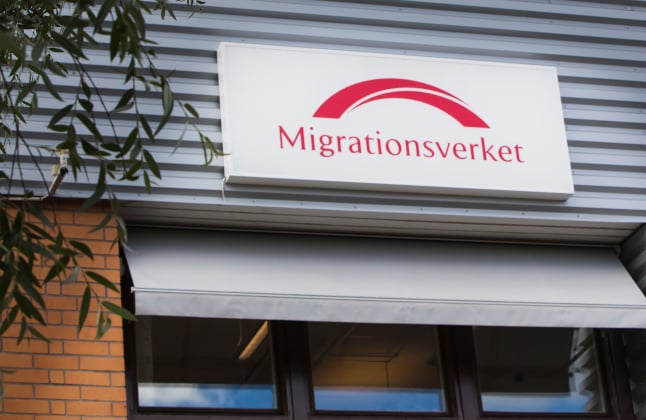Swedish universities have been offering only distance teaching since mid-March, based on coronavirus recommendations from the health authorities. But on Friday the government and Public Health Agency announced that from June 15th universities would again be allowed to open their doors to students.
The announcement came just hours after the Swedish Migration Agency warned that the coronavirus pandemic could affect students' residence permit extensions. That's because one of the permit conditions is that the majority of teaching must take place on campus, which means distance teaching is not sufficient.
“If your higher education institution decides that most or all of the teaching in the autumn semester will be conducted remotely, then according to the applicable legislation the Swedish Migration Agency will not be able to grant you a residence permit,” said as statement which sparked concern among many students.
Friday's decision to allow universities to return to on-campus teaching may mean that many students will find it easier to get their permit extension approved. But much remained unclear at the time of publication.
Several Swedish universities have previously announced that they will keep teaching remotely next semester. It will now be up to each university to decide how to proceed, with the government warning that some form of distance teaching may still be needed for institutions that are not able to observe other coronavirus restrictions and recommendations, such as social distancing or no public events of more than 50 people.
Malmö University, one of the universities that had previously said it would continue digital teaching until November, said on its website: “The Swedish government announced on Friday, May 29th, that universities can prepare for a gradual return to on-campus teaching. More information about the new government decision's implications on teaching and other activities at the university will be published here shortly.”
The Swedish government also stressed that the decision to allow on-campus teaching did not mean that the coronavirus outbreak was over, and said that the decision may change again if the situation deteriorates.
One master's student in Sweden, who wished to remain anonymous, told The Local that the situation was “very stressful”. “For me for example, if I have to return to my country, I don't have a place to live right now. My parents live in the countryside without connection with the internet, and they are risk group with diabetes and heart illness. Furthermore, the time zone will make it almost impossible to follow the lectures accordingly.”
“I think what most of us international students are feeling is a frustration regarding the conflicting information we've been given,” Patricia da Matta from Brazil, a master's student at Gothenburg University.
“Of course we understand that these are difficult times and the institutions are trying their best to sort it out, but decisions such as this from the Migration Agency seem very much strict especially considering the special circumstances we're all facing.”
The Migration Agency currently advises foreign students to “wait as long as possible to submit your application for an extension” if you are not yet sure what your university will do. “However, you must do so before your previous permit expires. This allows time to wait for the higher education institution to announce a decision about what form of teaching they will implement before your case is examined,” it continues.
Daniel Grynfarb, a legal expert at the Migration Agency, said that they were in contact with universities and would be able to grant permit extensions as long as most of the teaching would be done on campus.
“Based on current circumstances and regulations we will try to make as generous assessment as possible,” he promised in a statement.
There are other hurdles to overcome for new student permit holders moving to Sweden for the first time. An entry ban to the EU via Sweden currently in place means that people from outside the EU are generally not allowed to enter Sweden from a country outside the EU or Iceland, Liechtenstein, Norway, Switzerland and the UK unless they already live here (there are a few exceptions which you can read about here).
The entry ban is currently in place until June 15th, but may be extended.
“Even if the Swedish Migration Agency grants you a residence permit for studies, you cannot enter Sweden if the temporary entry ban is still in place,” warned the Migration Agency in an update on its website.
So far this year, 1,800 foreign students have applied for first-time residence permits to study in Sweden, compared to almost 4,700 in the same period last year, according to Swedish news agency TT.
More information about student permits and the coronavirus can be found here and here.



 Please whitelist us to continue reading.
Please whitelist us to continue reading.
I believe all these tensions can be removed if the migration agency takes a more liberal stand. Yes rules are to be followed; but this is a unique situation where unique decisions need to be made. Exceptions are always made for the right reasons. That’s what is the sign of wisdom and flexibility as well. Thanks